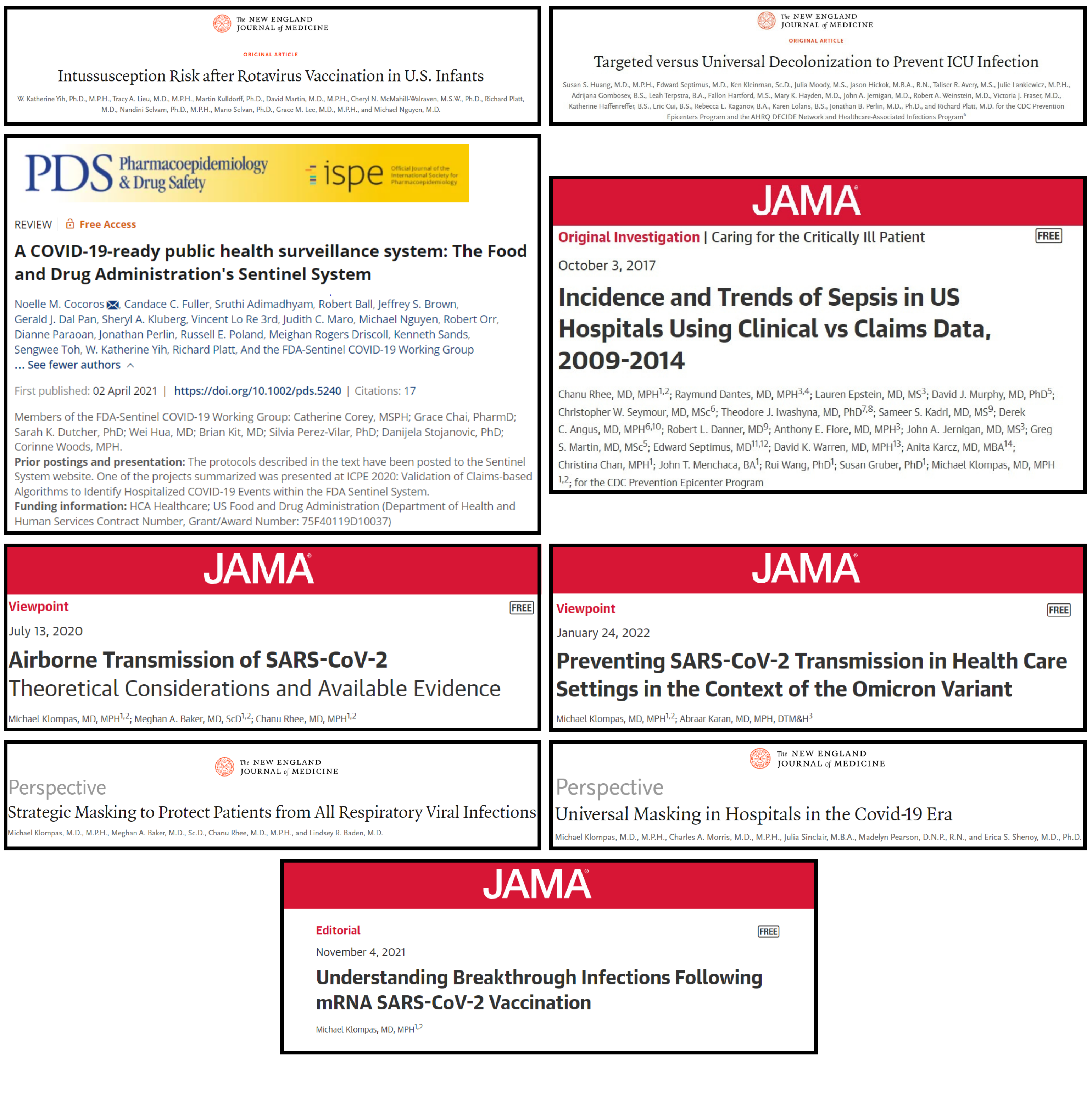TIDE's body of work spans two primary focus areas: Pharmacoepidemiology and Infectious Disease Epidemiology.
Pharmacoepidemiology Research
Determining the effectiveness of marketed drugs and vaccines, ensuring their safety, and improving the appropriateness of their use are longstanding, important societal challenges. Current activities focus on development of new knowledge, and of better local and national capabilities to perform collaborative research. We lead several distributed data networks to support therapeutics research and surveillance programs.
Please click on the links below to learn more about our ongoing Pharmacoepidemiology Research projects.
A national medical product monitoring system.
Health Data Collaborations for Safety and Effectiveness Research (HDC-SER)
Best-in-class expertise in complex multi-site leadership and operations.
A software platform that facilitates the creation, operation, and governance of distributed health data networks.
NIH Pragmatic Trials Collaboratory
Supporting the design and execution of pragmatic clinical trials.
Developing and applying cutting-edge analytic and data-sharing methods to improve the validity, feasibility, and efficiency of distributed data network studies.
Research in Informatics, Data integration and Emerging technologies (RIDE)
Facilitating population health research by leveraging existing data resources and harnessing emerging technologies.
Infectious Disease Epidemiology Research
The TIDE group leads several programs based on public-private partnerships between academic centers, health care organizations, and the traditional public health community focusing on the identification and reporting of notifiable infectious diseases. Our ongoing initiatives aim to enhance surveillance, reporting, prevention, and management of serious infections in hospitals and communicable diseases within the broader population.
Please click on the links below to learn more about our ongoing Infectious Disease Epidemiology Research projects.
Promoting new ways to address problems such as reducing the burden of healthcare-associated infections and antibiotic resistance.
An open-source software application that uses EHR data to conduct public health surveillance on the individual level for notifiable diseases and in aggregate for other conditions of interest to the public.
Providing healthcare epidemiology prevention Research, Implementation, Evaluation, Surveillance, and Medication Studies.
Improving the implementation of preexposure prophylaxis for HIV prevention and sexual health promotion.
